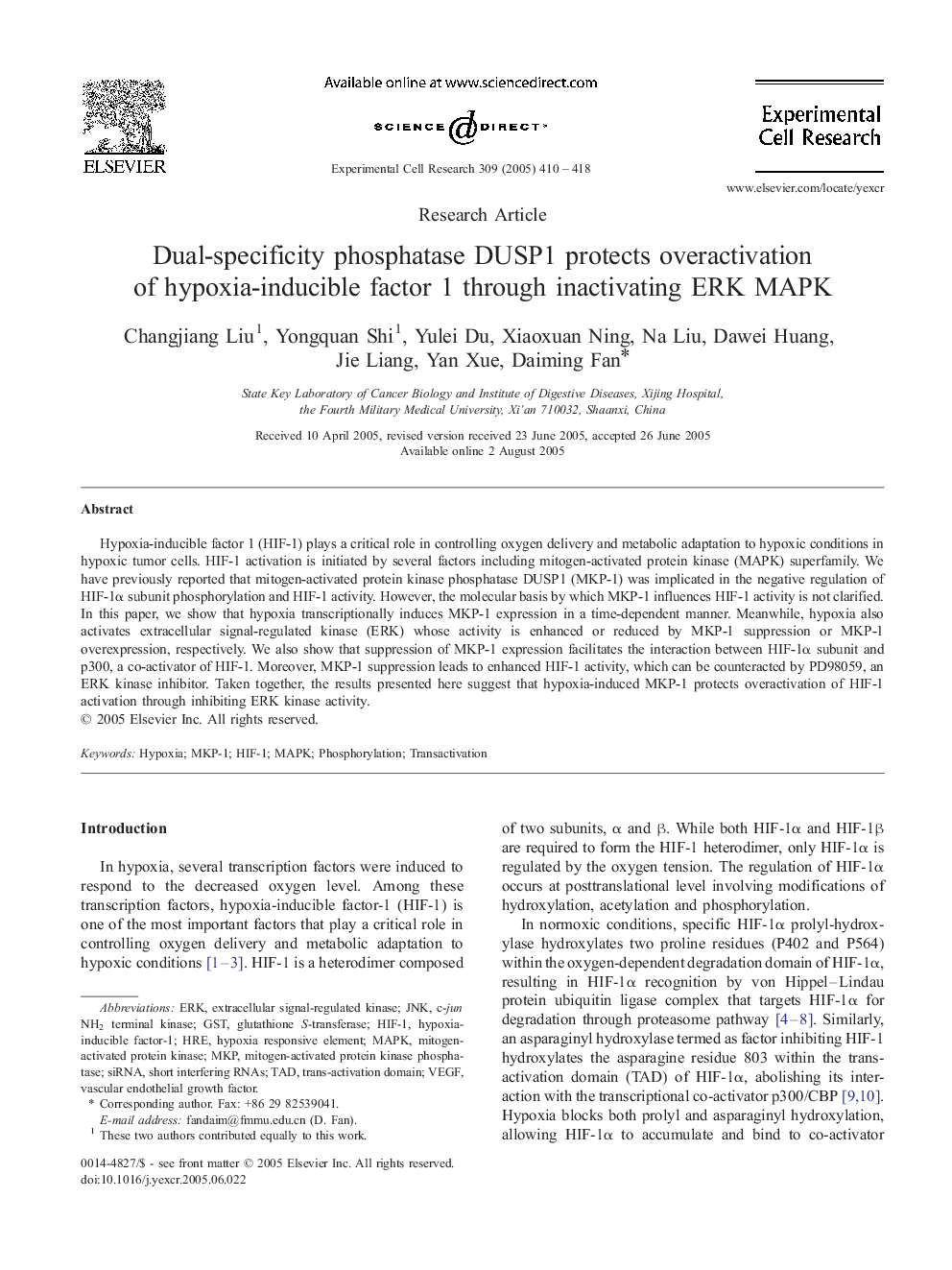| Article ID | Journal | Published Year | Pages | File Type |
|---|---|---|---|---|
| 10904772 | Experimental Cell Research | 2005 | 9 Pages |
Abstract
Hypoxia-inducible factor 1 (HIF-1) plays a critical role in controlling oxygen delivery and metabolic adaptation to hypoxic conditions in hypoxic tumor cells. HIF-1 activation is initiated by several factors including mitogen-activated protein kinase (MAPK) superfamily. We have previously reported that mitogen-activated protein kinase phosphatase DUSP1 (MKP-1) was implicated in the negative regulation of HIF-1α subunit phosphorylation and HIF-1 activity. However, the molecular basis by which MKP-1 influences HIF-1 activity is not clarified. In this paper, we show that hypoxia transcriptionally induces MKP-1 expression in a time-dependent manner. Meanwhile, hypoxia also activates extracellular signal-regulated kinase (ERK) whose activity is enhanced or reduced by MKP-1 suppression or MKP-1 overexpression, respectively. We also show that suppression of MKP-1 expression facilitates the interaction between HIF-1α subunit and p300, a co-activator of HIF-1. Moreover, MKP-1 suppression leads to enhanced HIF-1 activity, which can be counteracted by PD98059, an ERK kinase inhibitor. Taken together, the results presented here suggest that hypoxia-induced MKP-1 protects overactivation of HIF-1 activation through inhibiting ERK kinase activity.
Keywords
Jnkshort interfering RNAsC-Jun NH2 terminal kinaseMKP-1MKPTransactivationHREERKGSTHIF-1MAPKsiRNATADHypoxia responsive elementhypoxia-inducible factor-1Vascular endothelial growth factorVascular Endothelial Growth Factor (VEGF)PhosphorylationHypoxiamitogen-activated protein kinasemitogen-activated protein kinase Phosphataseextracellular signal-regulated kinaseglutathione S-transferase
Related Topics
Life Sciences
Biochemistry, Genetics and Molecular Biology
Cancer Research
Authors
Changjiang Liu, Yongquan Shi, Yulei Du, Xiaoxuan Ning, Na Liu, Dawei Huang, Jie Liang, Yan Xue, Daiming Fan,
